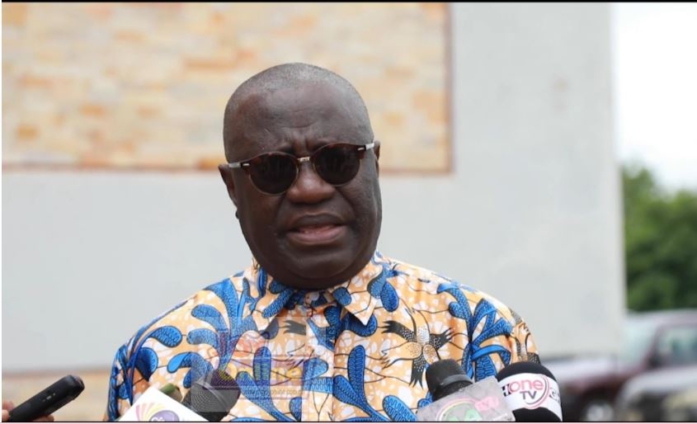The Director of the Faculty of Academic Affairs and Research at the Kofi Annan International Peacekeeping Training Centre (KAIPTC) says the ECOWAS standby force was instituted to respond to civil wars and not to be engaged in eras of constitutional changes within its member states as it seeks to do presently in the wake of the coup in Niger.
Professor Kwesi Aning says there is no conflict or civil war in Niger, therefore the bloc should rather consider using "a graduated set of responses" to resolve the situation.
"The standby force idea was also to respond first and foremost to civil wars and not to constitutional changes or internal political misunderstandings where there is massive bye-in as to what is happening. I mean there's no conflict in Niger per se.
"There rather ought to be a graduated set of responses as an internal crisis escalates," he said on JoyNews' Newsfile on Saturday.
The expert explained that the bloc does not seem to have exhausted all options in its laid down procedures. The West African bloc has jumped steps, according to Prof. Aning. "What we've seen is an automated response from ECOWAS, from zero to hundred,"
Military option should be the last resort, he stressed.
ECOWAS has reportedly given the green light to its standby force to prepare for what it calls an intervention in Niger. According to reports, heads of forces of member states are convening in Accra to hatch an intervention plan.
This follows a one-week ultimatum given to the military junta in Niger to return the country to a constitutional order following its coup.
On the back of this, Prof. Aning explained that the bloc has even defaulted when it comes to its processes in moblising forces for interventions.
"If you look at the mechanism Article 28, 1, it specifies the processes for force generation. That has not been followed. Quite a number of these decision-making processes and procedures have been hopped over and then we have taken the decision of last resort," he explained.
He indicated that international organisations function best when there is compliance with what they have voluntarily signed on to and when there is a sense of "bindingness" relating to the values, principles and decision-making processes.
Latest Stories
-
Shamima Muslim urges youth to lead Ghana’s renewal at 18Plus4NDC anniversary
34 minutes -
Akufo-Addo condemns post-election violence, blames NDC
41 minutes -
DAMC, Free Food Company, to distribute 10,000 packs of food to street kids
2 hours -
Kwame Boafo Akuffo: Court ruling on re-collation flawed
2 hours -
Samuel Yaw Adusei: The strategist behind NDC’s electoral security in Ashanti region
2 hours -
I’m confident posterity will judge my performance well – Akufo-Addo
3 hours -
Syria’s minorities seek security as country charts new future
3 hours -
Prof. Nana Aba Appiah Amfo re-appointed as Vice-Chancellor of the University of Ghana
3 hours -
German police probe market attack security and warnings
3 hours -
Grief and anger in Magdeburg after Christmas market attack
3 hours -
Baltasar Coin becomes first Ghanaian meme coin to hit DEX Screener at $100K market cap
4 hours -
EC blames re-collation of disputed results on widespread lawlessness by party supporters
4 hours -
Top 20 Ghanaian songs released in 2024
5 hours -
Beating Messi’s Inter Miami to MLS Cup feels amazing – Joseph Paintsil
5 hours -
NDC administration will reverse all ‘last-minute’ gov’t employee promotions – Asiedu Nketiah
5 hours

